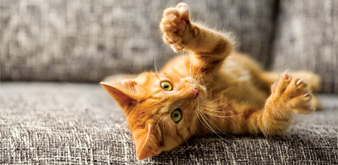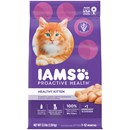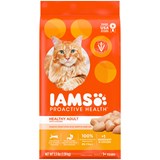Healthy Skin and Coat for Your Cat

Why is Nutrition Important to Skin and Coat Health?
Nutrients such as protein, fat, vitamins and minerals play important roles in the skin and coat health of cats. Skin and hair is used to prevent things from leaving (such as water or heat) or entering (such as viruses and bacteria) the body.
The hair coat is composed almost entirely of protein. If your cat’s diet doesn’t contain enough quality protein, her hair may fall out or become dry, weak and brittle.
Skin is made up of flat cells tightly packed together. These cells have tough membranes that are composed of proteins and fats. Without proper nutrients, cell membranes weaken, allowing water to escape and bacteria and viruses to enter more easily.
Essential Amino Acids and Fatty Acids
Proteins are found in both animal-based and plant-based ingredients. Animal-based proteins contain all the essential amino acids cats need, whereas plant-based proteins may contain only some. Cats need the nutrients in animal-based proteins for the best of health.
Fats can also be found in both animal-based and plant-based ingredients. They are incorporated into skin cells as fatty acids. There are two essential fatty acids for skin and coat health. Linoleic acid and arachidonic acid maintain skin and coat condition in cats. Without them, cats may experience a dull, dry coat, hair loss, greasy skin and increased risk of skin inflammation. Both of these are found in animal tissues like chicken fat, whereas vegetable oils such as corn and soybean are rich in linoleic but do not contain arachidonic acid. Omega-3 fatty acids, another type of fats, are found in vitamin-rich fish oils. Iams Company research has found that the fatty acids in fish oils help promote excellent skin and coat health.
Vitamins and Minerals
Vitamins and minerals are essential for the development of healthy skin and coat. The best way to provide them is through a complete and balanced diet rather than through supplements.
| Vitamin or Mineral | Importance to Skin and Coat Health |
|---|---|
| Vitamin A | Necessary for growth and repair of skin |
| Vitamin E | Protects skin cells from oxidant damage |
| Vitamin C | Helps heal wounds |
| Biotin | Aids in the utilization of protein |
| Riboflavin (B2) | Necessary for fat and protein metabolism |
| Zinc | Necessary for fat and protein metabolism |
| Copper | Involved in tissue, pigment and protein synthesis |
Changes in Coat Condition
Diet is often believed to be a factor when changes in skin and coat condition are noticed. The most common causes, however, are changes in season and life stage. As cold weather approaches, most cats grow a thick coat to help keep heat in and cold air out. As the weather begins to warm up, they shed their thick, heavy coat.
Most kittens are born with soft, fuzzy hair, but as they age, a coarser coat grows. Pregnant and nursing cats may also experience a change in coat condition or hair loss.

